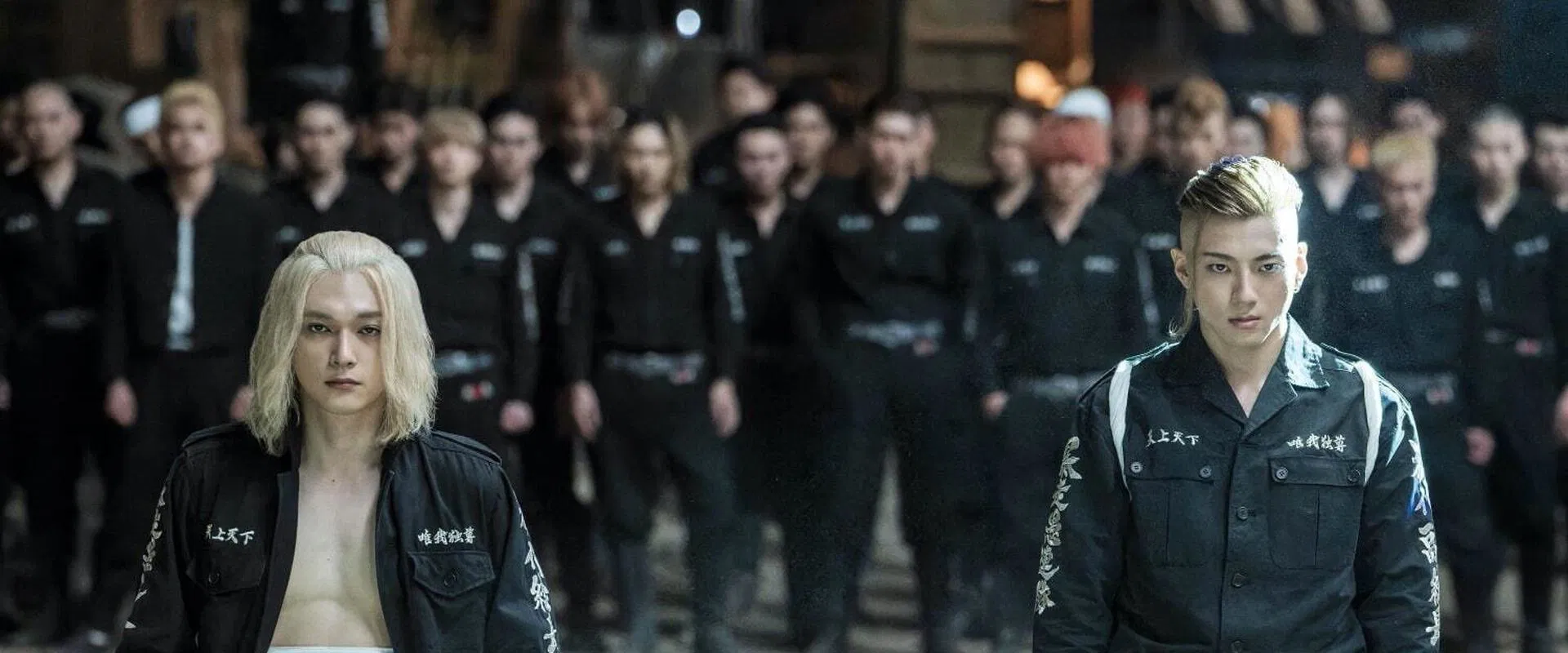Middle chapters are supposed to draw blood—the best of them do, not just on the battered faces of its heroes but on the audience’s nerves, on their capacity to care as much as the characters do. “Tokyo Revengers 2 Part 1: Bloody Halloween – Destiny,” the latest cinematic digression in the undead manga juggernaut, takes a look at wounds—metaphorical and literal—that never quite clot, never quite heal. There’s soul, there’s spunk, but not always the pulse.
Director Tsutomu Hanabusa, that energetic showman, seems to know there’s a beating heart beneath all the peroxide hair and gym-class bravado, and he makes a valiant attempt to pump some oxygen into his ensemble’s veins. The trouble is, this is a movie so entangled in its own legend, so bogged down in backstory and fatalistic chess games, that every emotional blow lands a little softened, a little smudged by self-explanation. You yearn for the snap of a street fight, but often get the drone of a lecture hall. It’s as if the director had mistaken the pause before a punch for the punch itself.
Takumi Kitamura, reprising his role as Takemichi Hanagaki, anchors the swirling narrative with the desperate hush of a man chasing not only his own heartbreak but the possibility that heartbreak might be the only thing making him human. He shuffles between timelines, mourning the spirit of a girl who has died so many times she’s almost become his memory’s mascot, if not his hope. There’s a sorrowful momentum whenever Kitamura is allowed to simply feel, which is not nearly as often as the material deserves. The acting is resolute: Kitamura’s wide-eyed agony as he lurches through fate’s revolving doors, Nijirô Murakami and Shôtarô Mamiya deepening the roster of young men stuck in cycles of loyalty, rage, and regret.
But Hanabusa’s movie has all the symptoms of middle-child syndrome. It’s neither as briskly kinetic as the first chapter nor as feverish as we hope the final will be. The set-pieces—bare-knuckle alley brawls shimmering with urban anxiety, big dramatic reveals that should send shivers down your spine—are repeatedly drowned by a tsunami of exposition. Oh, what a fate to be forever explaining! There’s always a risk, with adaptations that trace their roots to serialized manga, of being so faithful to the lovers of lore that you lose the uninitiated—and here, too often, you can feel the momentum suffocating under the weight of context. The dialogue doubles back on itself, determined to lay naked every wound and connection, and winds up anesthetizing the very drama it’s meant to animate.
Visually, Hanabusa brings some verve—Tokyo is rendered as a kind of glittering purgatory, the neon all wound around acts of violence, indecision, and longing. The soundscape thrums, the costumes bristle with their own mythology, and for a moment the world quickens: fists fly, a jacket flaps in slow motion, a hero howls into the indifferent night. But the fever breaks, and you’re back to a conference of ghosts and guilt, forever rearranging the timeline in pursuit of a future that mostly looks like different shades of the same pain.
At its core, “Bloody Halloween – Destiny” wants to mean something about sacrifice: is it noble, or just a way to run from oneself? The movie raises the question, then ties it in a bow of melodrama and tragic inevitability. It flirts with existential cinema—do our choices matter, or are we just rerunning the same heartbreak with better lighting? But for all its yearning, it’s a little like a time traveler caught in a holding pattern, going back to fix what must stay broken if it is to move you at all. The best scenes pulse with raw emotion, but too many stray into high-gloss self-seriousness.
Does it entertain? If you loved the first, you’ll find things to clutch here—Kitamura’s anguish, the camaraderie flickering in the darkness, a well-timed kick or scowl. But if you hoped for a knockout, you may leave with nothing more than a bruised appetite, waiting for the final round to deliver what this one only hints at.
Perhaps it’s fitting for a movie about desperate repetitions and second chances to feel like an anxious pause, a breathless interlude before fate comes calling again. “Tokyo Revengers 2 Part 1: Bloody Halloween – Destiny” is a mournful, handsomely dressed time loop—ambitious, occasionally electric, but ultimately stranded between the promise of the first and a conclusion that, with any luck, will learn how to bleed without interruption. You watch, you care, but you never quite get lost. And isn’t that, after all these reversals, the cruellest fate of all?


